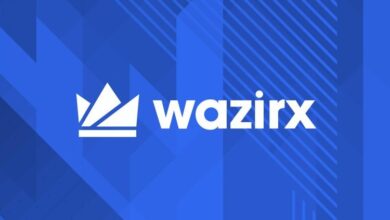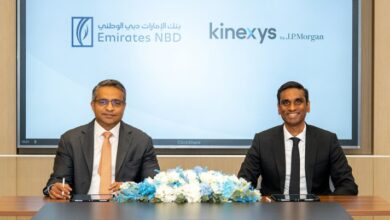
In a recent webinar on, “Blockchain in Oman Logistics sector” organized by Business Year, Port of Salalah Oman Chief Commercial Officer Sunil Joseph along with Colonel Said Al Ghaithi, Deputy Director General of Oman Customs, as well as Thomas Sproat Senior Director of Global Network Development at Tradelens came together to discuss how blockchain can benefit the logistics sector in Oman and globally.
As per Joseph, “Port of Salalah is convinced that Blockchain is beneficial for the entire logistics sector and will have a huge impact on ports. In Laymen terms Blockchain allows us to record a shipment from origin to destination, and no one is able to amend anything without permission, as such it not only reduces errors but also complexity and fraudulent activities and as such increases efficiencies. It will have a profound impact on the future of logistical industry and hence the globe.”
Port of Salalah has taken the first step and is collaborating with Oman Customs. According to Joseph the next step is to see more players on board. He states, “We are pleased to see Oman Customs collaborate with us and TradeLens, an IBM Hyperledger Fabric Platform for shipping and logistics industry, and as more players join the benefits of being early adopters increases and allows for savings and trade growth.”
Al Ghaithi added, “ We believe Blockchain will help all logistical partners especially in import export and as Customs we are at the end of the circle for both and blockchain will help us a lot as we can trace original invoices and track facilitating trade.”
Sproat explains further, “Blockchain at the port of Salalah will increase customer visibility on shipments and as such add a level of service not available before.”
As for the challenges, Sunil believes that the biggest challenge is getting parties on board, and going through the complex legal and geographical systems that differ from country to country. He states, “ We carried out one pilot with a shipment from Kenya to Rotterdam and this shipment had to go through 30 different stakeholder with over 200 documents exchanged, with blockchain there is a tremendous amount of savings in terms of storage and paperwork. If Blockchain is implemented in the logistics sector it could increase GDP by 5% and global trade by 15%.”
He explains further, “Oman has taken a head start and is working on bringing all parties on board so we can take a lead in the region.”
Sproat agrees that even globally this is a challenge He stats, “ the most important thing is the strength of the ecosystem and each player moves at their own speed depending on their circumstance, but once more players are on board the momentum starts to build and participants realize the benefits more and more. With the blockchain Bills of Laden become digitized.”
According to Joseph if Port of Salalah as a first step is able to transform 10-15% of its business onto blockchain then we would consider this as a success. He explains, “This is our immediate target along with Customs. We will have a number of trial shipments in 2021 and from there move forward.”
In terms of Customs, according to Al Ghaithi, “Oman Customs is connected with 32 entities getting them all onboard is our main objective for 2021.”
Port of Salalah first joined Tradelens project in January of 2020. Saudi Arabia was one of the first countries in GCC to join Tradelens project with a trial in mid 2019, but since then no news on progress has been announced.




